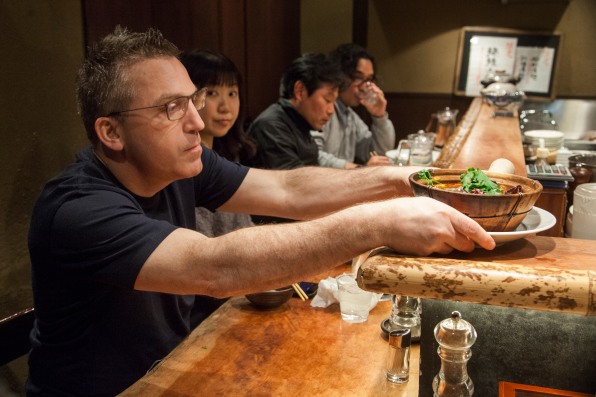
Sometime around 2002, when I was 13 or 14, I was a pudgy and awkward kid growing up in western Massachusetts. I remember being with my Mom, staring at the TV. I think she was making dinner, as was the woman on screen. She had a raspy voice, one that struck me even then as being rather approachable. This was someone breaking down the wall between host and viewer. I remember her making everything in front of the camera. Nothing magically appeared from the oven perfectly done. She made a meal in 30 minutes, just as my Mom was trying to do. As memories go, it’s admittedly inconsequential, but it’s stuck with me, reminding me of people I knew, and those moments before dinner and all the usual elements of comfort one associates with simple, honest cooking.
Ten years later, I moved to New York to start my career, and food TV was actually something I cared about, first as an insomnia remedy, but it soon became a favored evening pastime. Amid the Emerils, Marthas, and Inas, there was a documentary on Netflix called Jiro Dreams of Sushi. The film profiles the family behind the three-Michelin star Japanese restaurant Sukiyabashi Jiro. It was a film about food, yet there was so much more to it: It told a story about family, success, failure, and Japanese culture. It was both captivating and beautiful–and you couldn’t help but project your own familial neuroses into it, which is a benchmark of a good film.
These two seemingly disparate memories should have as much in common as gas-station California rolls and a perfect piece of toro cut from a tuna that was purchased from the Tsukiji fish market hours earlier. Yet Rachael Ray and Jiro exist together not only in my memories, but also in a continuum of food television and the role it plays in viewers’ lives. They also represent a changing of the guard from Food Network, which helped define a generation of programming and stars with its, dare we say, innovative shows—think Good Eats, The Iron Chef, Ray’s 30 Minute Meals, and A Cook’s Tour, starring a youngish journeyman chef named Anthony Bourdain, all of which debuted on its network between 1999 and 2002. Read more

You are my inhalation, I own few blogs and occasionally run out from brand :). “He who controls the past commands the future. He who commands the future conquers the past.” by George Orwell.
Comments are closed.